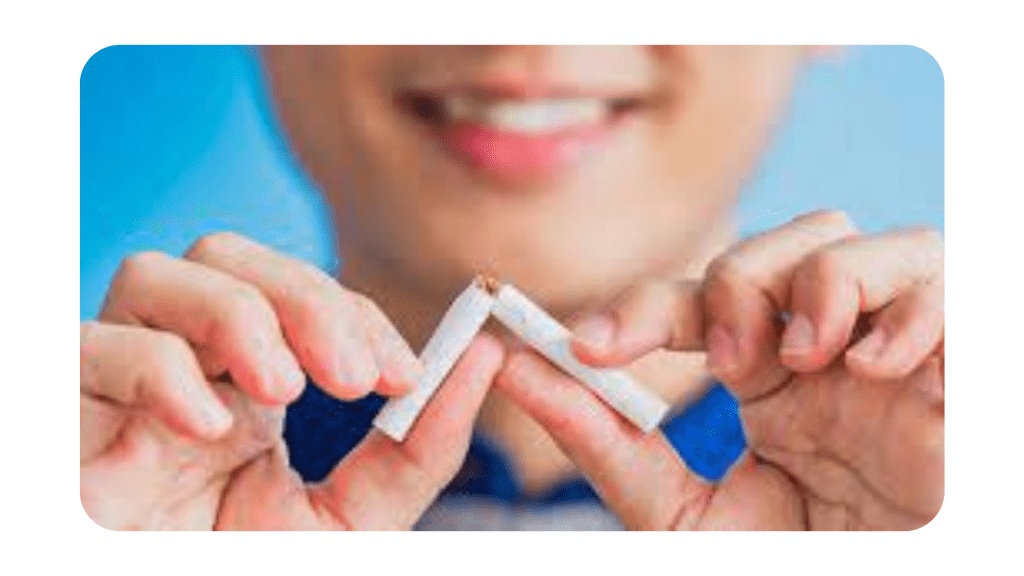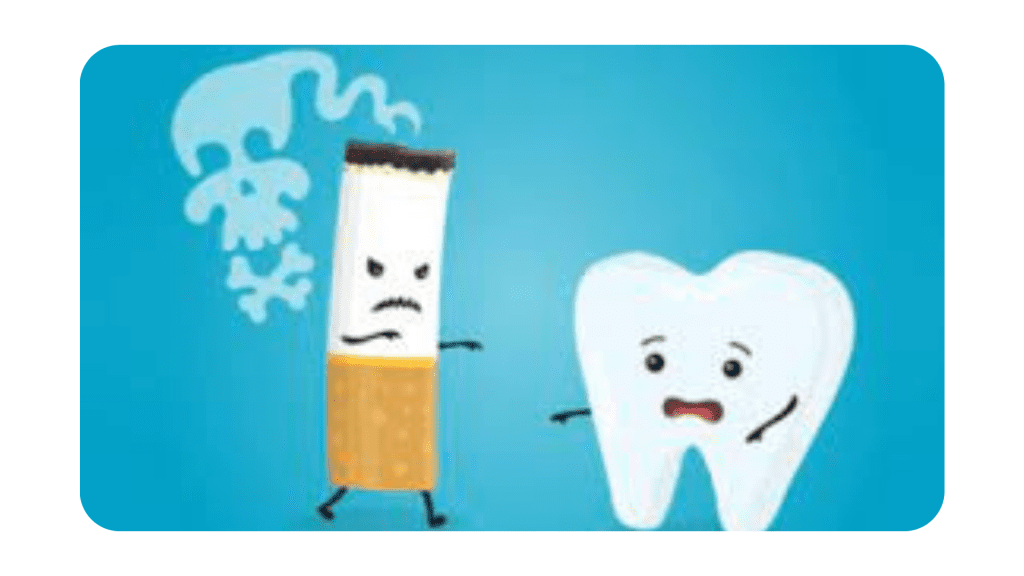
When it comes to your oral health, there are a number of reasons why it is in your best interest to give up smoking.
Even though tobacco use is the leading preventable cause of illness and death around the world, a staggering 32.4 million people in the United States continue to engage in the habit of smoking cigarettes. This is the case despite the fact that the number of people who smoke in the United States is staggering.
Despite the fact that overall smoking rates have significantly decreased over the course of several decades, the American Cancer Society (ACS) reports that more than 16 million Americans are currently living with a smoking-related disease. [Further citation is required] [Further citation is required]
It is common knowledge that smoking increases one's risk for a number of diseases, the most well-known of which are lung cancer and heart disease. On the other hand, the mouth is where many of the health issues that are associated with smoking become evident the earliest and in the most obvious way. Issues that are not as serious, such as discoloration of the teeth, can be on the same spectrum as diseases that have the potential to be fatal, such as cancers of the mouth and throat. These can range from one another.
Tobacco contains a number of different chemicals, including nicotine, tar, and others, all of which contribute to an accumulation of bacteria in the body, which is harmful in a variety of different ways. To add insult to injury, tobacco use lowers the immune defenses of the body, making it more difficult to combat the diseases that were previously mentioned.
Continue reading to gain a better understanding of the connection between tobacco use and oral health, the signs and symptoms that you should look out for, and the reasons why quitting smoking will be the best thing you can do for your mouth when you quit smoking.
There are three primary ways in which the use of tobacco, including smoking and the use of other products containing tobacco, can lead to problems with oral health:
The oral health problems that can result from smoking can vary greatly from one person to the next. They may shift depending on a variety of factors, such as the quantity used and the length of time that smoking has been a habit for the individual.
The Lungs of a Cigarette Smoker
Because nicotine and tar are both components of tobacco, "smoker's mouth" can develop after only a brief period of time spent puffing on cigarettes. It can cause your teeth to become discolored, give you bad breath, cause an increase in the buildup of plaque and tartar, which can lead to periodontal disease and cavities, and generally result in poor oral hygiene.
If a person smokes cigarettes for a sufficiently long period of time, they put themselves at risk of developing mouth sores as well as a condition that is commonly referred to as "smokers tongue." This condition gives the tongue the appearance of being hairy and may even cause it to change color, taking on a yellowish, greenish, or brownish hue.
Inflammation of the Gums
One of the most significant risks that smoking poses to a person's oral health is the development of periodontal disease. According to the findings of a study that was published in the Journal of Dental Research, people who smoked had an increased risk of gum disease that was more than twice as high as non-smokers.
The following is a list of the most prevalent forms of gum disease:
1. Gingivitis, an inflammation of the gums that can be harmful to the body and occurs when plaque and tartar build up and become embedded under the gums as a result of poor oral hygiene. Periodontitis can be identified by a number of symptoms, some of which include gums that are irritated, tender, swollen, and prone to bleeding.
2. Periodontal Disease: If gingivitis is not treated, it can progress into periodontitis, which is a more advanced form of gum disease. Gingivitis is the milder of the two gum diseases.
Periodontal disease is an inflammatory infection that eats away at the gum tissues and can be prevented by maintaining good oral hygiene. Periodontal disease can also be referred to as gum disease. This can, over time, result in receding gums, deep pockets, and bone loss, all of which can make infections both more common and more serious. Additionally, deep pockets can make flossing more difficult. If treatment is not received, there is a chance that the teeth will become loose, that they will lose their attachment, or that they will have to be extracted.
Periodontitis can be treated in two ways: surgically and by performing a deep cleaning below the gum line. Both of these methods are effective.
Diseases of the Throat and Mouth Cancer
The most severe forms of oral cancer, which are caused by tobacco use, can affect the lips, tongue, and throat as well as the mouth. These cancers frequently result in death. According to the Mouth Cancer Foundation, the risk of developing oral cancer in smokers is approximately six times higher than the risk of developing oral cancer in people who do not use tobacco. There is a possibility that you will experience swelling or lumps around your mouth or neck, persistent sores or patches, difficulty swallowing, or repeated bleeding in the mouth and throat. These symptoms can be caused by herpes simplex virus type 1.
Attending routine dental checkups increases the likelihood that any abnormalities in the mouth will be detected as early as possible. This allows for more effective treatment. Your dentist has completed specialized training to be able to examine you for warning signs of oral cancer, and going in for these examinations on a routine basis increases the likelihood that any abnormalities will be discovered.
How to Break Your Smoking Habit and Improve Your Oral and Overall Health by Quitting Smoking

Quitting smoking is the most important step you can take to reduce all of these risks, and it's also the step that most people overlook. Or better yet, never start. The American Lung Association recommends the following strategies for assisting smokers in kicking the habit:
Find ways to keep yourself occupied that are also beneficial to you, and then make sure you actually do those things. Exercising, beginning a new hobby, or participating in an activity that you enjoy with friends who don't smoke are all effective methods for kicking the habit.
Quitting smoking will unquestionably result in a significant increase in benefits, despite the fact that the process of doing so may be difficult. Your lung function will improve over time, your heart rate and blood pressure will decrease, and as a direct result, your risk of developing cardiovascular disease will drop by a significant amount. On its website, the American Cancer Society (ACS) provides a Quit Smoking Timeline, which outlines the numerous positive effects that quitting smoking will have on a person's health from the moment they put their first cigarette out of their mouth to well after ten years have passed since they last lit up a cigarette in their mouth. This timeline covers the period of time from the moment they quit smoking until well after ten years have passed since they last lit up a cigarette
It is possible to reverse some forms of gum disease, and all forms can be halted or prevented entirely by maintaining a healthy oral hygiene routine and going to the dentist for checkups on a regular basis. A study that was presented at the meeting of the American Academy of Periodontology and that was published in the Journal of Periodontology discovered that the likelihood of developing periodontal disease decreased significantly with each additional year since the individual stopped smoking. This information was presented at the meeting of the American Academy of Periodontology.
CLICK HERE TO SCHEDULE YOUR APPOINTMENT!
GET TO KNOW YOUR BEST DENTIST IN SUMMERLIN
Dr. Marianne Cohan was voted The Best Dentist/ Dental Office and Best Cosmetic Dentist from The Las Vegas Review-Journal in 2020 and 2021. She received her Doctor of Dental Surgery (DDS) from the State University of New York at Buffalo in 1992.

With an emphasis on cosmetic dentistry, complete makeovers, and implant dentistry, Dr. Cohan is committed to continuing education and feels that we never stop learning. Dr. Cohan takes pride in using high-powered magnification to perform minimally invasive restorative dentistry. She uses all the latest technological advances including digital radiography, digital photography, computer simulations, and high-resolution pictures of your proposed treatment on 55-inch screens. She also utilizes CBCT (cone beam) and laser technology.
Dr. Cohan is always available to her patients and is available for any dental emergency.